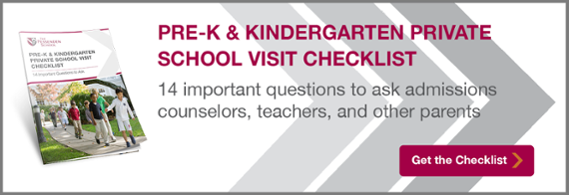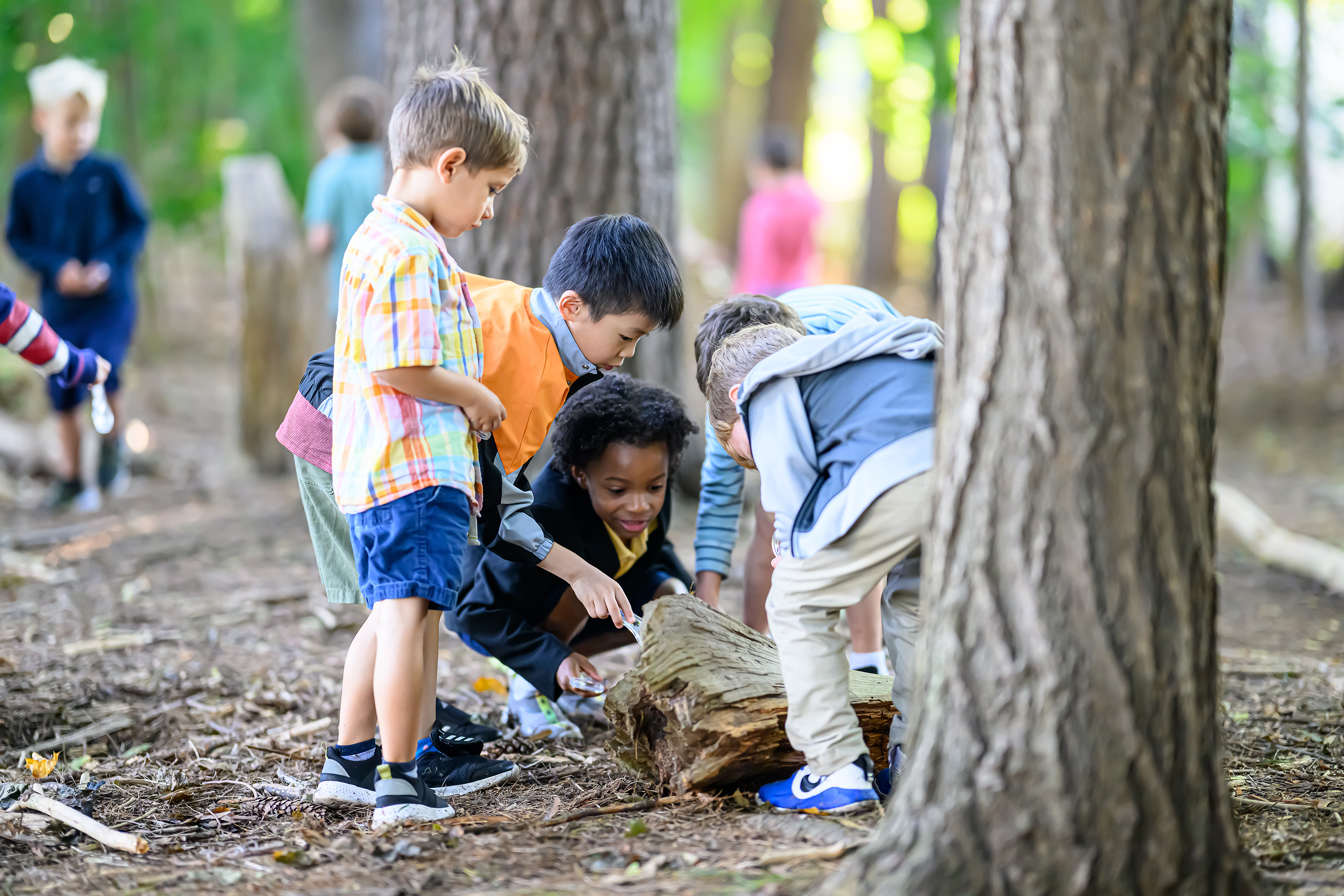We say often at The Fessenden School that play is a child’s work. Children at play aren’t just having fun (although they are!), they’re learning. Play is how young children process new information and start to make sense of the world around them.
Play is the pre-kindergarten teacher’s most powerful tool. In fact, in a well-structured pre-K classroom, play and academics are one in the same.
“We know play is the most beneficial activity children can do, so we have them play throughout their day,” says Susan Heard, a Pre-K teacher here at The Fessenden School. “A bystander might say, ‘Oh, they’re just playing in a sandbox.’ But everything we do is intentional and thought out.”
Recently, a parent told Susan, “My son loves school and feels like he is playing all day long. He feels no pressure to ‘learn’ anything.

But underlying that daylong play session is a carefully planned academic structure that starts to build a solid learning foundation for the boys.
“In some other play-based models, you can lose some of the intentionality of play and some of these wonderful opportunities for learning through play,” Susan says.
Your son may think he’s playing just for the sake of playing, but in a high-quality private pre-kindergarten program like Fessenden’s, he will be learning, too. Here are three focal points of our Pre-K program:
1. A love of learning
“Our main goal in the Pre-K program is to get the boys excited about learning and ensure that they love coming to school,” Susan says. “An easy way for us to do that is to provide them with play opportunities that foster their academic development.”

Susan illustrates her point with an example. One of the play centers in her classroom is a sensory table filled with sand. For a week, Susan says, she filled the table with animals, encouraging the boys to play with the animals and explore the sand.
Then Susan replaced the animals with shapes of different sizes and colors. She and the other teachers asked the boys to sift the shapes out of the sand and sort them into different bins based on physical attributes.
Together, students and teachers counted the sides of the shapes they found. This inevitably led to discussions between teachers and students about the names of the different shapes. Among other things, the boys learned that a hexagon has six sides.
“To them it still feels very much like play and they’re enjoying it,” Susan says. “But their academic foundation is also being built.”
2. They develop language skills
Through the experience of playing with something—like the shapes in the sandbox—holding it, manipulating it, and talking about it, children start to attach meanings to the words they hear.
Early childhood education expert Angie Dorrell told PBS, “Children can’t define parts of language until they’ve experienced the true meaning of the word.”
Play also helps young children develop their language skills by allowing them to try out new words in different contexts. For example, Susan says, boys in her classroom recently learned about nitrates in their fish tanks.
“Now, when they’re playing, we hear them saying, ‘Are there nitrates in the river? Are there nitrates in our playground?’ Play gives them the opportunity to test out new vocabulary in a safe space, in a safe way.”
3. Being a part of a group
Play helps pre-K children prepare for kindergarten, and life beyond, by teaching them how to function as a member of a group.

When 4- or 5-year-old boys join others in play, they may find themselves in a situation they’re not used to: not controlling where the play is going or their role in it. They may have to take on a role that is outside their comfort zone.
If the boys are playing bus stop, a popular game at Fessenden, for example, some of them may have to settle for being passengers when they really wanted to be the driver.
“Through play, the boys are able to take a back seat sometimes. It gives them the opportunity to listen to other people’s ideas, to go with the flow, and to be flexible. Normally at home, they wouldn’t have that opportunity,” Susan says. “A huge part of pre-K is learning to put your own needs and wants aside for the benefit of the group.”
What else do pre-K children learn through play?
These are just three of the lessons children learn while playing in a well-designed pre-K program like Fessenden’s. For more information, contact The Fessenden School and inquire about our private Pre-K program for your son.
Read On

Designed For Play: How Fessenden’s Pre-K/K Playground Helps Boys Learn
The Importance of Play in Pre-K: 3 Expert Opinions

